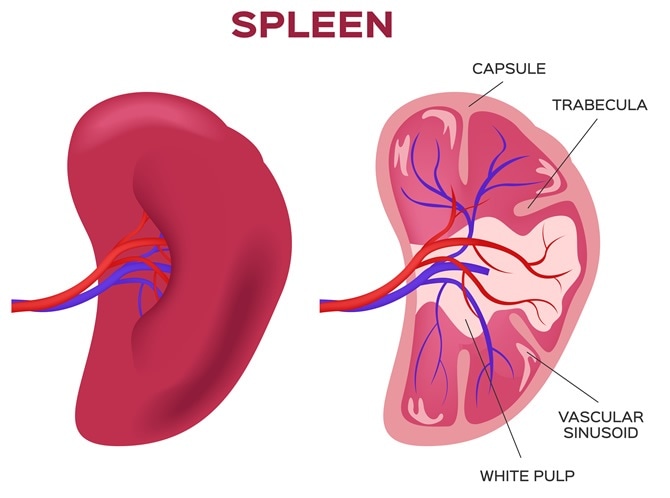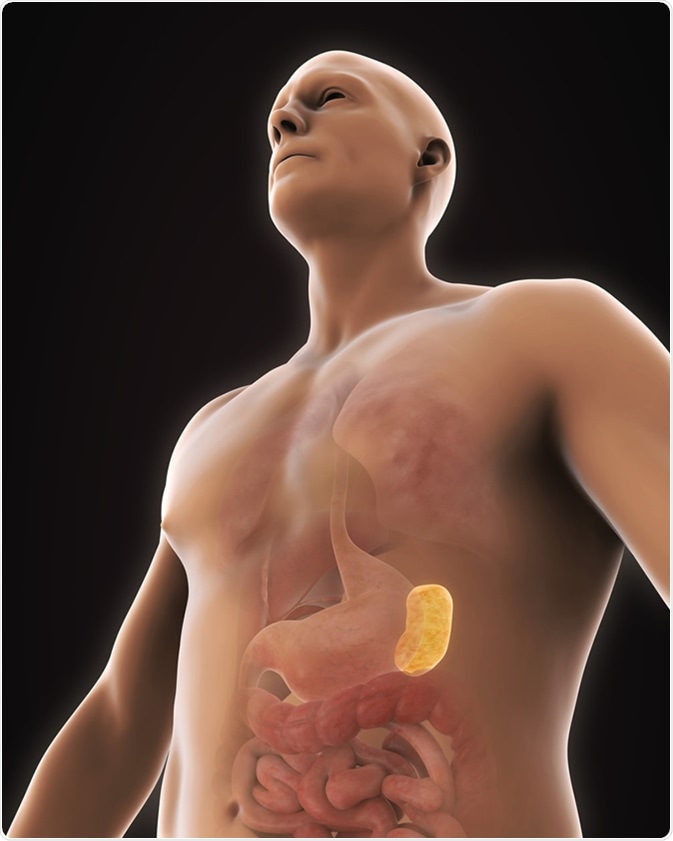Asplenia, or the absence of a spleen, may be the result of functional or anatomical deficiency in spleen function.

Image Credit: By gritsalak karalak / Shutterstock
Precautions
Following splenectomy, the patient loses the immune capability of the spleen with respect to antibody production and lymphocyte activation.
In most cases, the risk of infection is low, however, the risk of quickly escalating overwhelming infection is 1-5 percent over 10 years. It is highest in children below 16 years, or in those with other conditions such as sickle cell anemia or celiac disease.
For this reason, a splenectomized patient should take certain precautions:
Information About Asplenic Status
Always wear a medical bracelet or necklace, or carry a medical card with you, so that others know of your post-splenectomy status should you be unable to tell them during an emergency.
Always make sure your healthcare providers are aware that you lack a spleen before the start of any treatment.

Human Spleen Anatomy Illustration. 3D rendering - Image Credit: Nerthuz / Shutterstock
Immunization
Immunization against the following infections is wise, in consultation with your healthcare provider. These should be administered at the right intervals for complete protection:
- Hemophilus influenza type B
- Meningococcus type C
- Pneumococcus
- Seasonal influenza
Antibiotics
Take regular prophylactic antibiotics daily as recommended to prevent serious infections for the first few years after splenectomy, and up to 16 years of age for younger children, because this is the period of highest risk. If the medications are stopped, the physician should be informed at once.
It is recommended that you keep a supply of appropriate antibiotics with you in case of illness without access to immediate medical consultation. You should also know how much of each can be taken at once.
Signs of possible infectious illness include fever with chills, sore throat, abdominal pain or cough of acute onset, and severe headache. If any of these are present, the first dose should be taken appropriately from the available supply.
Then the symptoms need to be reported at once to the doctor and further tests obtained or treatment continued, always reminding the healthcare provider of your asplenia.
Treatment of Infection
All symptoms of illness should be reported as early as possible to your physician to prevent them from worsening rapidly unnoticed. The earlier the diagnosis, the less the chance of serious infection.
Any traumatic injury, especially dog or insect bites, should be immediately treated. When outdoors, protection against tick bite and mosquito bite is strongly advised.
Foreign Travel
If foreign travel is required, medical advice is mandatory to ensure that proper immunization and prophylactic anti-malarials are provided.
A supply of extra antibiotics is always essential for early treatment of infection, while daily prophylactic antibiotics should always be continued.
Malaria and meningococci can affect asplenic people much more severely than others.
Your medical card might need translation into the local language of the region you intend to visit if English is not widely used in that area.
References
Further Reading
Last Updated: Feb 27, 2019